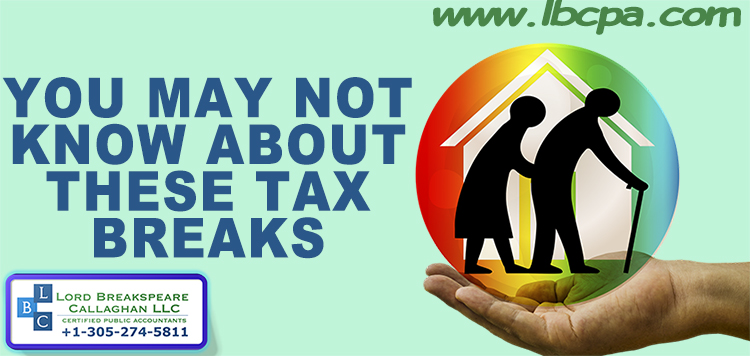LBCPA News 
Click here to go back
Offset Nursing Home Costs With Possible Tax Breaks

If you have a parent entering a nursing home, taxes are probably the last thing on your mind. But you should know that several tax breaks may be available to help offset some of the costs.
Medical expense deductions
The costs of qualified long-term care (LTC), such as nursing home care, may be deductible as medical expenses to the extent they, along with other qualified expenses, exceed 7.5% of adjusted gross income (AGI). But keep in mind that the medical expense deduction is an itemized deduction. And itemizing deductions saves taxes only if total itemized deductions exceed the applicable standard deduction.
Amounts paid to a nursing home are deductible as medical expenses if a person is staying at the facility principally for medical, rather than custodial care. Also, for those individuals, only the portion of the fee that’s allocable to actual medical care qualifies as a deductible expense.
If the individual is chronically ill, all qualified LTC services are deductible. Qualified LTC services are those required by a chronically ill individual and administered by a licensed health care practitioner. They include diagnostic, preventive, therapeutic, curing, treating, mitigating and rehabilitative services, and maintenance or personal-care services.
For your parent to qualify as chronically ill, a physician or other licensed health care practitioner must certify him or her as unable to perform at least two activities of daily living (ADLs) for at least 90 days due to a loss of functional capacity or severe cognitive impairment. ADLs include eating, toileting, transferring, bathing, dressing and continence.
Qualifying as a dependent
If your parent qualifies as your dependent, you can add medical expenses you incur for him or her to your own medical expenses when calculating your deduction. We can help with this determination.
If you aren’t married and you meet the dependency tests for your parent, you may qualify for head-of-household filing status, which has a higher standard deduction and lower tax rates than filing as single. You may be eligible to use this status even if the parent for whom you claim an exemption doesn't live with you.
Selling your parent’s home
In many cases, a move to a nursing home also means selling the parent’s home. Fortunately, up to $250,000 of gain from the sale of a principal residence may be tax-free. To qualify for the $250,000 exclusion, the seller must generally have owned the home for at least two years of the five years before the sale.
Also, the seller must have used the home as a principal residence for at least two of the five years before the sale. However, there’s an exception to the two-of-five-year use test for a seller who becomes physically or mentally unable to care for him- or herself during the five-year period.
LTC insurance
Perhaps your parent is still in good health but is paying for LTC insurance (or you’re paying LTC insurance premiums for yourself). If so, be aware that premiums paid for a qualified LTC insurance contract are deductible as medical expenses (subject to limits) to the extent that they, when combined with other medical expenses, exceed the 7.5%-of-AGI threshold. Such a contract doesn’t provide payment for costs covered by Medicare, is guaranteed renewable and doesn't have a cash surrender value.
The amount of qualified LTC premiums that can be included as medical expenses is based on the age of the insured individual. For 2022 for those 61 to 70 years old, the limit on deductible premiums is $4,510 and for those over 70, the limit is $5,640.
Need more information?
This is just a brief overview of tax breaks that may help offset nursing home and related costs. Contact us if you need more information or assistance.
If you have any questions regarding accounting, domestic taxation, essential business accounting, international taxation, IRS representation, U.S. tax implications of Real Estate transactions or financial statements, please give us a call at 305-274-5811.
Source: Thomson Reuters






